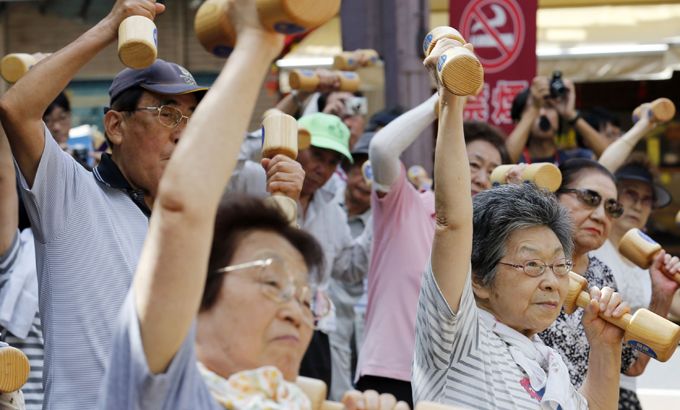
Looking after an ageing world
As the world’s population ages at an unprecedented rate, the UN says more must be done to help the elderly.
The world’s population is ageing at an unprecedented rate and while a United Nations report is calling this a cause for celebration, it also poses a huge challenge.
|
“I think this is a cause for concern because the young’s fertility is declining and life expectancy is increasing all over the world … these issues are not clear to many of the developing countries. This is a social as well as a demographic issue and the government is very concerned about how to tackle this issue.“ – Hafiz Khan, former research fellow at the Oxford Institute of Population Ageing |
We look at what those challenges are, how the elderly can keep contributing to society and whether enough is being done to support them.
The Madrid International Plan of Action on Ageing is the only global agreement for improving older people’s lives. It is being released 10 years after ageing was first discussed within the context of human rights.
The world is getting old fast and within the next 10 years, there will be more than one billion people over the age of 60. The UN is calling for governments to take action and face this new reality.
The organisation has released a report to coincide with Monday’s International Day of Older Persons, in which it encourages new approaches to health care, retirement and living arrangements.
Ban Ki-moon, the UN secretary general, wrote in the report’s preface that: “The social and economic implications of this phenomenon are profound, extending far beyond the individual older person and the immediate family touching broader society and the global community in unprecedented ways.”
Here are some of its recommendations:
|
“Yes, there are issues of levels of care and issues of expenditure and those have to be met. I think the political pressure on western European governments is, that they should fund better quality care for the elderly rather than forcing many to sell their homes or mortgage their homes for what can be very expensive care in care homes.“ – Jeremy Corbyn, a UK Labour Party politician |
- Governments should fight any kind of discrimination against older people.
- The elderly should be able to work for as long as they want.
- They should have the same access to preventive and curative care, as well as rehabilitation as other age groups.
- Older people should also have access to decent housing, receive support if they are care-givers and be free from neglect, abuse and violence.
- It also warns that the skills and knowledge of these older people are going to waste.
Three years in the making, the report shows some quite startling numbers:
- The ageing phenomenon, for example, is happening faster in poorer countries. By 2050, four out of five elderly people will be in developing nations.
- Right now only Japan has more than 30 per cent of its population over 60 years old. But by 2050, there will be more than 60 countries with the same demographic.
- The report also says that 47 per cent of the world’s older men and 24 per cent of older women are still in the labour force but, only one third of countries have comprehensive social protection schemes.
Inside Story, with presenter Laura Kyle, speaks to Alex Bush, the assistant director of programmes and policy at HelpAge International, which co-authored the UN report; Jeremy Corbyn, a UK Labour Party politician and a member of parliament for Islington; and Hafiz Khan, a senior lecturer in Applied Statistics and a former research fellow at the Oxford Institute of Population Ageing.
FACTS ABOUT THE ELDERLY:
- Number of elderly expected to grow 30 per cent in 64 countries by 2050
- Japan, South Korea & China are the world’s fastest ageing countries
- Japan one of 33 countries with life expectancy of more than 80 years
- 30 per cent of Japan’s population is over 60 years old, highest in the world
- Japanese women expected to live to more than 90 years by 2060